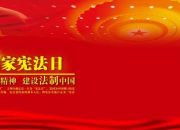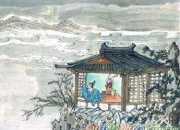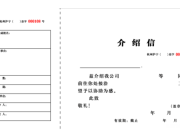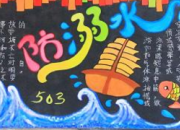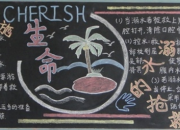清明节手抄报英语
时间:2021-08-31清明节手抄报英语
清明节的特殊内涵在于,它既是一个追忆和祭奠先人的肃穆日子,也是人们踏青游玩、享受春天无穷乐趣的节日。下面我们为你带来清明节手抄报英语,仅供参考,希望能够帮到大家。
清明节手抄报篇一
清明节用英语怎么说?
首先我们要清楚的是:作为节日的清明节、和作为节气的清明节,它们的英文说法是不同的。
作为节日的清明节一般翻译为"Tomb Sweeping festival"或者"Tomb-sweeping Day",扫墓节或扫墓日。这个翻译着重强调了清明节的重要习俗“扫墓”。这种说法的好处是,老外一听就能大概明白这个节日的背后含义。
也有人把清明节翻译为"All Souls'Day",这是一种站在对方文化角度考虑做出的翻译。因为"All Souls'Day"在西方是确实存在的节日,一般称为“万灵日”。这是一个宗教节日,在有的教派里甚至不止一天。教会会在这一天为那些去世后无法进入天 堂的信徒祈祷,希望他们早日进入天堂。其基本意义和清明节相似,也是祭奠死者的节日。
另外再谈到作为节气的清明,它被译为"Clear and Bright",清洁和明亮。我们也不难发现,这种译法强调的是清明时节的'气候状况,和其他节气的翻译出发点一致。比如立夏被译为"Summer begins"、小寒、大寒分别被译为"Slight cold"和"Great cold"。
清明节手抄报篇二
寒、大寒分别被译为"Slight cold"和"Great cold"。
清明节英语例句:
The day after tomorrow is the Tomb-sweeping Day.
后天是清明节。
The Qingming Festival in spring is the occasion for visiting ancestral graves.
清明节是扫墓拜祭先人的日子。
The Qingming Festival is a statutory public holiday in mainland China.
清明节在中国大陆地区是法定节假日。
Qing Ming is a time to remember the dead and the dearly departed. More important, it is a period to honour and to pay respect to one's deceased ancestors and family members. Because it reinforces the ethic of filial piety, Qing Ming is a major Chinese festival. Literally meaning "clear" (Qing) and "bright" (Ming), this Chinese festival falls in early spring, on the 106th day after the winter solstice. It is a "spring" festival, and it is an occasion for the whole family to leave the home and to sweep the graves of their forebears. Chinese being practical people this sweeping of the graves is given an extended period, that is, 10 days before and after Qing Ming day. Among some dialect groups a whole month is allocated.
清明节是一个纪念祖先的节日。主要的纪念仪式是扫墓,扫墓是慎终追远、郭亲睦邻及行孝的具体表现;基于上述意义,清明节因此成为华人的重要节日。 清明节是在仲春和暮春之交,也就是冬至后的106天。扫墓活动通常是在清明节的前十天或后十天。有些地域的人士的扫墓活动长达一个月。
清明节有种扫墓的习俗叫“前三后四”,也就是说百姓扫墓应该选择清明节当天的前三天或者后四天去进行扫墓、祭拜逝去的亲人。为了倡导低碳祭拜,近几年,百姓们衍生出了许多低碳环保的祭拜方式,“纸钱”祭拜将逐渐淡去。
说到“纸钱”,英语中是怎么表述的呢?大家可能第一时间想到的就是paper money,不过字面上的确是“纸钱”的意思,实际上paper money的意思是“纸质货币”,与“金属货币”metal money相对应,是“人世”的钱,不是烧给死者的纸钱哦。
例:The Song dynasty was the first government in world history to issue paper money.
宋朝是世界上第一个发行纸币的政府。
那么,烧给死者的纸钱是什么呢?一起来看看有哪些说法:
By overloading the path with spiritual money, hopefully all troubled souls on the way will be too occupied with the money and leave the traveling-soul alone.
在路上洒满纸钱,亡魂就会忙于捡钱,不会骚扰过路者。
Yan Wang is normally depicted wearing a Chinese judge's cap and sometimes appears onChinese Hell Bank Notes.
阎王通常穿着一身古代官服,纸钱上也会有他的形象。
以上两种说法,spiritual money和hell bank notes都比较形象地说明了“纸钱”的本质,一是象征意义上的钱(spiritual),二是烧给阴间(hell)的人使用的钞票(bank notes)所以,纸钱我们可以说spiritual money或者 hell bank notes.
更多相关文章推荐阅读:
【清明节手抄报英语】相关文章:
2.英语清明节手抄报


